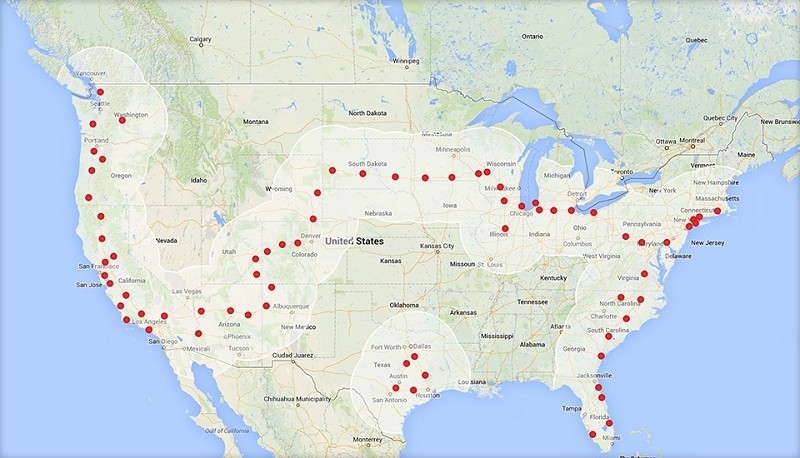Tesla’s coast-to-coast network of electric vehicle recharging stations is now complete. Using the company’s high-speed recharging stations known as Superchargers, a Model S driver can now commute from Los Angeles to New York (or vice versa) for the very first time.
As seen by the map below, however, the route isn’t exactly the most favorable in terms of speed or distance. Instead of shooting across I-40, I-I70 or I-80, drivers will need to head north from Albuquerque up to South Dakota and restart their easterly trek from there.

Each Supercharging station is installed near a major highway and is within walking distance of restaurants, cafes or shopping centers. Such close proximity allows drivers to take a break and grab a bite to eat or do some shopping while their vehicle is being recharged.
A 30-minute recharge will propel the Model S roughly 170 miles but more importantly, each recharge is completely free. As such, many argue that the time it takes to recharge the vehicle more than makes up for the cost of fuel, but I digress.
The pioneering electric car company plans to dot the map with several more Superchargers over the course of 2014. By 2015, we’re told the entire country will be covered which would make it possible to visit every state in the continental US and some parts of Canada without sipping an ounce of gasoline.
It’s an impressive feat no matter how you look at it, especially when you consider many never expected Tesla to get this far.
https://www.techspot.com/news/55457-teslas-supercharger-network-now-stretches-coast-to-coast.html